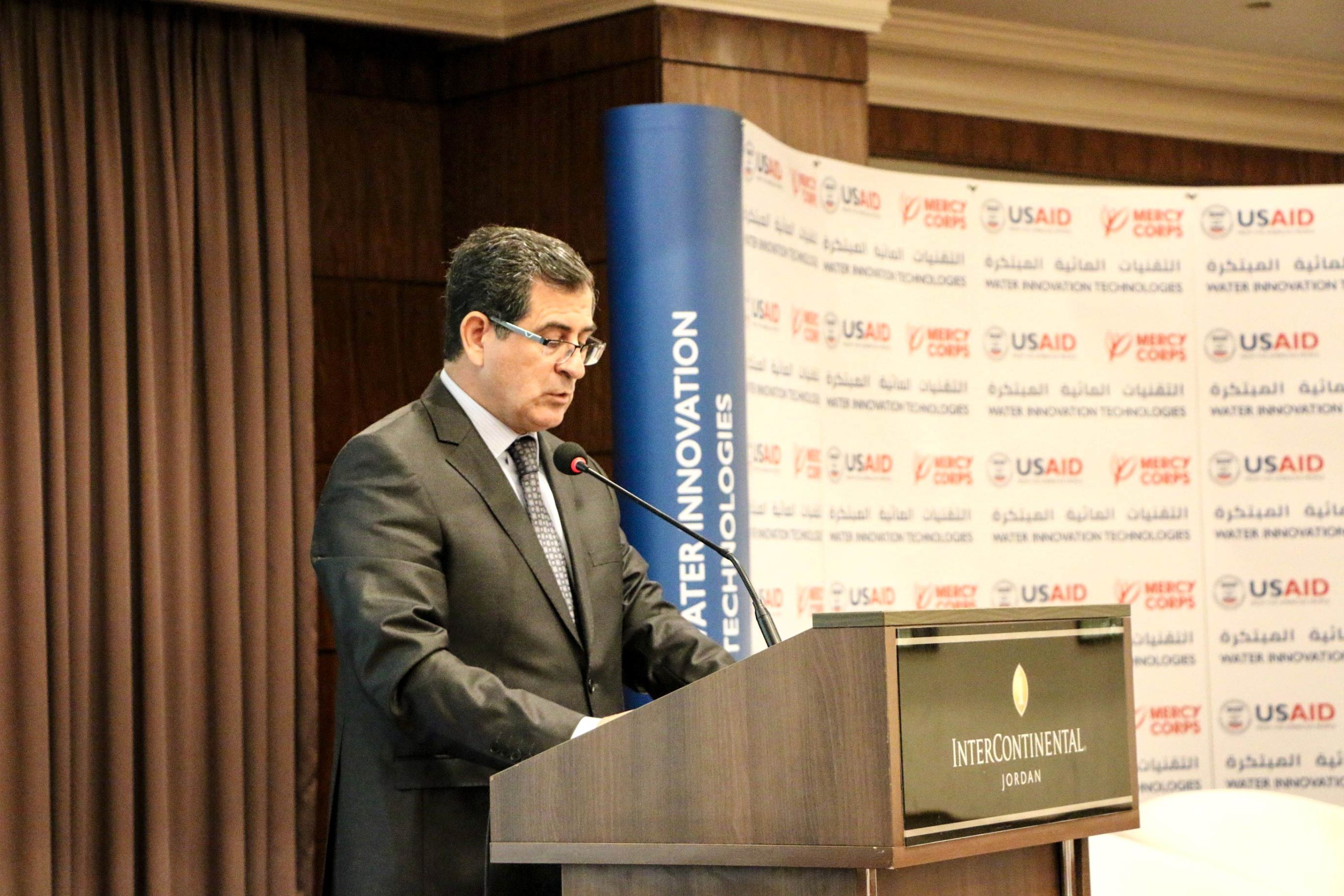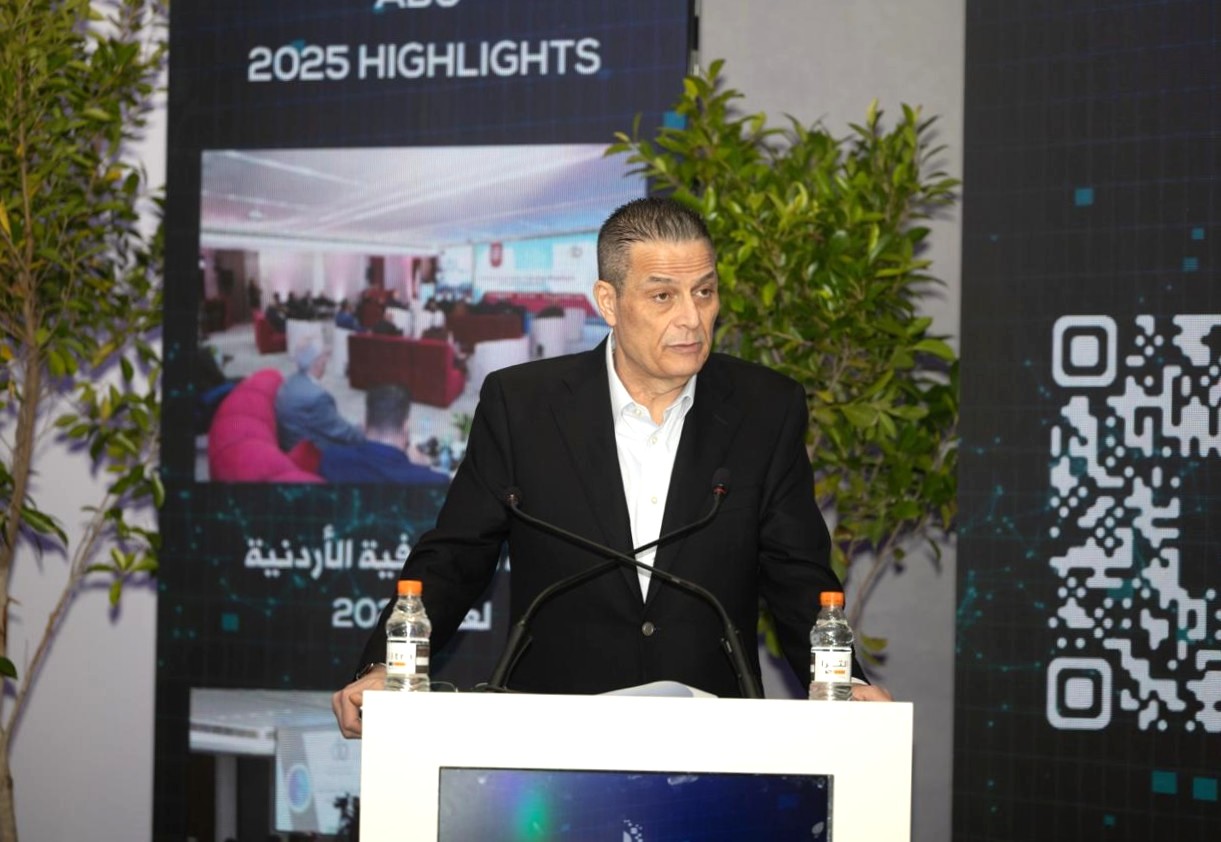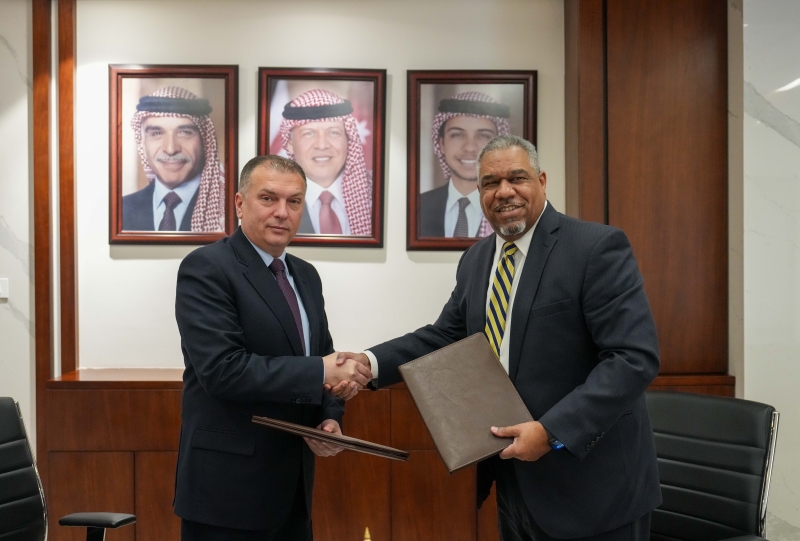
UNDER THE PATRONAGE OF CENTRAL BANK OF JORDAN
USAID WATER INNOVATION TECHNOLOGIES PROJECT
HOLDS DIALOGUE SESSION ON FINANCIAL FACILITIES OF WATER DEMAND MANAGEMENT PROJECTS
AMMAN – 9 April, 2019- Under the auspices of the Central Bank of Jordan (CBJ), the USAID Water Innovation Technologies Project (WIT), in cooperation with the Ministry of Water and Irrigation (MWI), and the Associations of Banks in Jordan (ABJ), held a dialogue session with participants including representatives of key banks, microfinance institutions (MFIs), Jordan Farmers Union, and other notable banking sector actors.
The dialogue session aimed to shed light on the main barriers to adoption of water-saving technologies in the agricultural and household sectors and to explore how the formal financial sector may help overcome those barriers. These technologies (along with the appropriate practices) will reduce water consumption of the users while improving water use efficiency. One area of discussion includes the role of the CBJ in providing financial facilities for water demand management projects in the agricultural and household sectors. This is often through CBJ advances offered at preferential interest rates to some regional and international organizations who then offer soft loans; or a CBJ mechanism to identify areas of cooperation between the formal financial institutions and technical experts with the goal of providing financial services to farmers and individuals. Furthermore, the panel discussion addressed the role of banks and MFIs in enhancing financial facilities for water demand management projects, finding solutions, and creating a clear framework for means of cooperation between the official financial institutions and service providers.
During the session a panel discussion was held to highlight the importance of partnerships between the public-private sectors and civil society organizations for facilitating water demand management project financing, addressing the financial gaps, identifying existing opportunities, and seeking opportunities to strengthen cooperation between the different stakeholders.
For his part, Dr. Adnan Al Zoubi, Secretary-General of the Ministry of Water and Irrigation for Media Affairs/Minister Advisor presented the water situation in Jordan, resulting in poor water share per capita. He indicated that having a good rainfall season does not solve water scarcity and resource depletion as water resources in Jordan need several years of high rainfall and lower depletion rates in order to improve the overall situation. In this regard, Dr. Al Zoubi said that “water budget shows that available water quantities in Jordan are around 970 million cubic meters annually while the annual demand exceeds 1400 million cubic meters. Around 45 percent of water consumed is for drinking, agricultural uses 52 percent, and the remaining 3 percent is used for industrial purposes. Therefore, the Ministry works to leverage water-use efficiency by reducing wastage from each consumed water meter, especially in agriculture, and improving energy use, consumption rationalization, use of technology, etc.”
By the same token, Mr. Mohammed Al Amaireh, Executive Director of the Financial Stability Department, the Central Bank of Jordan, indicated that “the CBJ pays full attention to provide finance to all economic sectors at reasonable costs and terms, including the agricultural and water sectors, and to promote the role of banks and MFIs in line with the national financial inclusion strategy. That strategy includes actions to enhance financial inclusion for SMEs and individuals, especially with respect to capacity building of local communities, on using electronic payment services and electronic wallets.” Al Amaireh also described the CBJ programs and initiatives to provide SME finance in all sectors, particularly the agricultural sector.
Moreover, Dr. Adli Qandah, Director-General of the Associations of Banks in Jordan, added that holding session such as this shows the ABJ’s interested in the water security situation in Jordan. Because of this interest, the ABJ’s continued efforts in this area aim to enhance financing options for water sector projects and to collaborate with the Ministry of Water and Irrigation, Water Authority, European Union, and funders and donors to achieve water security in Jordan.
The Water Innovation Technologies Project, in cooperation with the Ministry of Water and Irrigation, is designed to conserve water in Jordan through focusing on effective use of water in household and agriculture sectors. The Central Bank of Jordan also aims to maintain Jordan’s monetary and financial stability, contributing to socio-economic development throughout the Kingdom.





